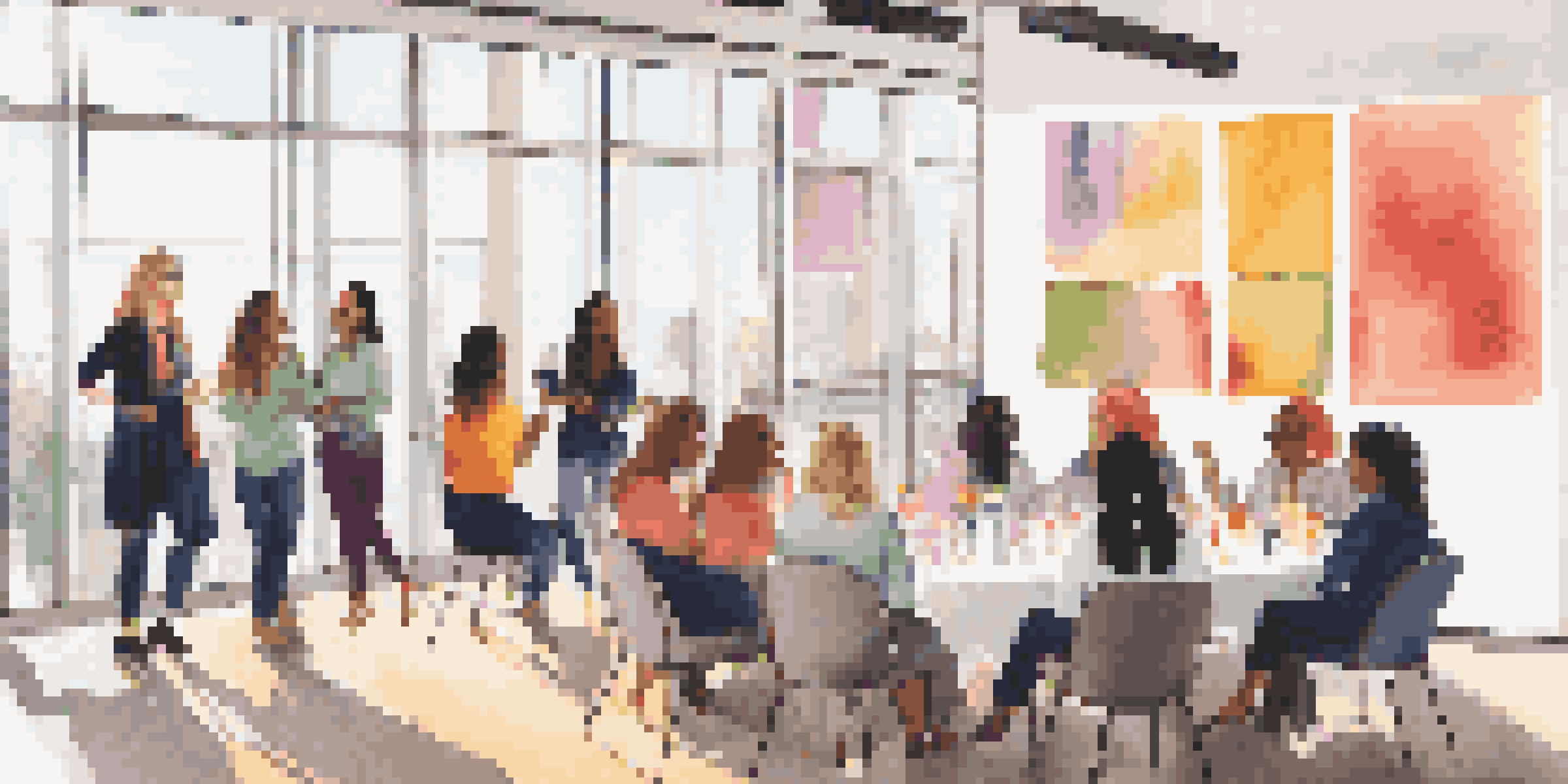Women in Music Licensing: Barriers and Breakthroughs

Understanding Music Licensing and Its Importance
Music licensing is the process that allows creators to use copyright-protected music legally. This is crucial in various industries, from film to advertising, where music adds emotional depth and engagement. Understanding music licensing can empower artists and rights holders to monetize their work effectively, ensuring they receive fair compensation for their creativity.
Music can change the world because it can change people.
For women in music licensing, grasping this concept is vital as it opens doors to a myriad of opportunities. With the rise of digital platforms, the demand for licensed music has surged, creating a fertile ground for women to thrive. By navigating this landscape, they can establish themselves as influential players in a traditionally male-dominated field.
As we explore the journey of women in music licensing, it’s essential to note that their contributions are not just about representation. They bring unique perspectives and creativity that enrich the industry, making it more diverse and innovative. This foundational understanding sets the stage for examining the barriers that still exist.
Historical Barriers Facing Women in Music Licensing
Historically, women have faced numerous barriers in the music industry, particularly in licensing roles. Stereotypes and systemic biases have often sidelined their contributions, resulting in an imbalance in representation. For instance, many licensing decisions have been made by men, which can lead to a narrow understanding of the diverse soundscapes women can offer.

Additionally, the lack of mentorship and networking opportunities for women further complicates their entry into this field. Many women find it challenging to break into established networks that often favor male counterparts. This situation highlights the importance of not just acknowledging these barriers but actively working to dismantle them.
Empowering Women Through Education
Education and training are crucial for women in music licensing, providing them with the skills and confidence needed to succeed in a complex industry.
The journey toward equality in music licensing is ongoing, but recognizing these historical challenges is crucial. It allows us to understand the context in which women operate today and the strides they continue to make. By shedding light on these issues, we can inspire change and encourage more women to pursue careers in music licensing.
The Role of Education and Training in Empowering Women
Education plays a pivotal role in empowering women in music licensing. Many institutions are now offering specialized programs that focus on music business, copyright law, and licensing, equipping women with the necessary skills. This educational foundation not only builds confidence but also prepares them for the complexities of the industry.
Women are the largest untapped reservoir of talent in the world.
Moreover, online platforms and workshops have emerged, providing accessible resources for women looking to enhance their knowledge. These opportunities allow them to learn at their own pace, network with industry professionals, and gain valuable insights. As women become more educated about music licensing, they can navigate the terrain more effectively.
The growing emphasis on education in this field signifies a positive shift, fostering an environment where women can flourish. By investing in their skills and understanding, they can break through barriers and challenge the status quo. This empowerment through education is a key factor in the ongoing transformation of the music licensing landscape.
Networking and Community Support: A Crucial Element
Networking and community support are essential for women in music licensing. Establishing connections with other professionals can lead to mentorship opportunities, collaborations, and valuable insights. Organizations focused on women's empowerment in the music industry are playing a significant role in fostering these connections.
For example, networking events and conferences specifically aimed at women in music help create a space where they can share experiences and advice. These gatherings not only promote camaraderie but also enable women to showcase their work and build their brands. The collective strength of these communities can amplify individual voices and pave the way for greater recognition.
Networking Fuels Female Success
Building connections and community support among women in music licensing promotes mentorship and collaboration, which are essential for overcoming barriers.
In a field where relationships matter, having a strong support system can make a substantial difference. Women supporting women creates a ripple effect, encouraging others to join and thrive in music licensing. This culture of collaboration and encouragement is vital for overcoming barriers and breaking new ground.
Success Stories: Women Making Waves in Music Licensing
Highlighting success stories of women in music licensing can serve as inspiration for others navigating the field. Women like Jody Gerson, CEO of Universal Music Publishing Group, have made significant strides, reshaping the industry's landscape. Their journeys often include overcoming challenges and demonstrating resilience, setting powerful examples for aspiring professionals.
These women not only excel in their roles but also advocate for greater representation and equality within the industry. Their achievements underscore the potential for women to lead and innovate in music licensing, proving that talent knows no gender. By sharing these stories, we can inspire a new generation of women to pursue careers in this vibrant sector.
Success breeds success, and as more women rise to prominent positions in music licensing, they pave the way for others. These role models help to shift perceptions and challenge stereotypes, furthering the progress toward equality. Celebrating these stories reminds us that the barriers facing women can be broken, leading to a more inclusive industry.
Innovative Approaches to Addressing Gender Disparities
Innovative approaches are emerging to tackle gender disparities in music licensing. Many companies and organizations are now implementing diversity initiatives aimed at fostering an inclusive environment. These initiatives often include hiring quotas, mentorship programs, and workshops designed to support women in their professional development.
Additionally, technology is playing a crucial role in leveling the playing field. Online platforms that facilitate licensing processes can empower women by providing them with the tools they need to succeed independently. This democratization of access allows for a more diverse range of voices to be heard and represented in the music licensing space.
Innovative Solutions for Equality
The music licensing industry is embracing innovative approaches, such as diversity initiatives and technology, to address gender disparities and foster inclusivity.
By embracing innovation and diversity, the industry can create a more equitable landscape. These progressive strategies not only benefit women but also enhance creativity and collaboration within the field. As the music licensing landscape evolves, so too does the potential for women to thrive and lead.
Looking Ahead: The Future of Women in Music Licensing
As we look ahead, the future of women in music licensing appears promising. With increased awareness of gender disparities, there is a growing commitment to fostering inclusivity. This shift indicates that more women will have the opportunity to carve out their own niches and contribute to the industry's evolution.
Moreover, the rise of social media and digital platforms provides women with new avenues to promote their work and connect with audiences. These tools empower them to take control of their careers and showcase their unique perspectives. The ability to share their stories widely can help inspire others and further advance the conversation around gender equality in music licensing.

In this evolving landscape, it's crucial to continue advocating for change and supporting women in their journeys. By nurturing the next generation of female leaders in music licensing, we can ensure that the industry becomes a more inclusive and vibrant space. The future is bright, and with collective effort, we can look forward to a more equitable music licensing world.